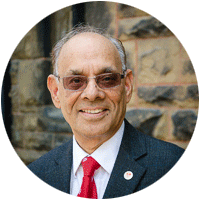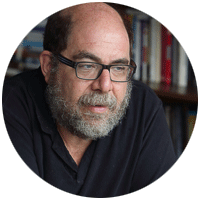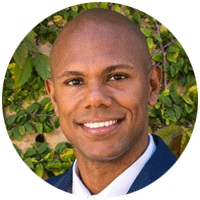Dans les machettes: Ignacio Cofone remporte un prix prestigieux; Payam Akhavan se mesure au Myanmar devant la Cour internationale de justice; Brian Havel reçoit un doctorat honorifique; plus des lettres d’opinion et articles avec Colleen Sheppard, Ram Jakhu, Robert Leckey, Daniel Weinstock et Mugambi Jouet.

‘No one was spared’: International Court hears Rohingya genocide case against Myanmar
Mark MacKinnon, The Globe and Mail, 10 December 2019
Aung San Suu Kyi sat impassively in a courtroom in The Hague on Tuesday, listening to the list of crimes allegedly committed by the country she leads: executions, mass rape, and the burning of homes and villages belonging to Myanmar’s minority Rohingya ethnic group. Once lauded in the West as a human-rights hero on par with Nelson Mandela and Mahatma Gandhi, Ms. Suu Kyi remained emotionless as Payam Akhavan, a professor of international law at McGill University who is serving as counsel to Gambia in the case, read parts of the UN’s 2018 report to the court. Read the full article.
Ignacio Cofone wins Future of Privacy Forum’s Privacy Papers for Policymakers Award
 Faculty News, 6 December 2019
Faculty News, 6 December 2019
The Faculty of Law is pleased to announce that Professor Ignacio Cofone has won the Future of Privacy Forum’s Privacy Papers for Policymakers Award for his paper Antidiscriminatory Privacy. The Privacy Papers for Policymakers (PPPM) Award recognizes leading privacy scholarship that is relevant to policymakers in the United States Congress, U.S. federal agencies, and data protection authorities around the world. Read the full announcement.
Loi sur la laïcité de l’état : L’indépendance de la magistrature
Robert Leckey, La Presse+, 6 décembre 2019
Dans la foulée de l’audience du 26 novembre à la Cour d’appel, beaucoup d’attention a porté sur la question de la retenue judiciaire lors d’une contestation hautement politisée et médiatisée. Or, puisqu’il fera bientôt six mois depuis l’adoption de la Loi sur la laïcité de l’État, il est approprié de prendre une perspective plus large. Après cet intervalle, quelques constats s’imposent concernant la nature et la durée du débat. Lire l’article au complet.
Nothing to hide, but something to lose
Ignacio Cofone, University of Toronto Law Journal, vol. 70, number 1, Winter 2020
‘I have nothing to hide’ is among the most common and controversial arguments against privacy. This article shows why the argument is mistaken on its own terms. To do so, it constructs a model combining the standard economic argument – that only people with ‘something to hide’ will value privacy – with a concept of intrinsic privacy preferences and shows that the inclusion of this dimension causes the standard argument to fail. It then applies these insights to two legal contexts in which there are active policy debates: the protection of genetic information in the context of employer-provided health insurance and tax privacy. Read the full article here.
Brian Havel se voit décerner un doctorat honoris causa de l’Université nationale d’Irlande
Nouvelles de la Faculté, 3 décembre 2019
La Faculté de droit est heureuse d’annoncer que le professeur Brian F. Havel a reçu un doctorat en droit honoris causa de l’Université nationale d’Irlande, University College Dublin. Lire l’annonce complète.
BILL 21: What are the rules about when a judge can make their personal feelings known?
CBC Daybreak Montreal, 3 December 2019
Should judges be allowed to express their personal feelings on legislation both in AND outside of the courtroom? We speak to Robert Leckey, the dean of the McGill Law school about those questions. Listen to the interview.
Dr. Ram Jakhu: “Space Militarizations is Leading to Space Weaponization”
 Asgardia, 24 November 2019
Asgardia, 24 November 2019
On the second day of the Asgardian Parliament Sitting, Dr. Ram S. Jakhu, who was deeply involved in drafting Asgardia’s constitution, presented an extremely important and exciting project called Manual on International Law Applicable to Military Uses of Outer Space (MILAMOS). MILAMOS is an international research project that started in 2016 for drafting a manual that would contain an independent and objective clarification of the rules of international law applicable to military uses of outer space. Keep reading…
Contesting Discrimination in Quebec’s Bill 21: Constitutional Limits on Opting out of Human Rights
 Colleen Sheppard, Rebecca Jones, BCL/LLB’19, and Nathaniel Reilly, Directions, 24 November 2019
Colleen Sheppard, Rebecca Jones, BCL/LLB’19, and Nathaniel Reilly, Directions, 24 November 2019
Bill 21 is difficult to reconcile with many aspects of Quebec’s human rights tradition. One group that is particularly affected by the new legislation is Muslim women. By prohibiting religious symbols in certain public sector jobs and potentially refusing services to people with covered faces, Bill 21 applies disproportionately to those who wear the hijab, the niqab, or other forms of face or head coverings. Read the paper.
Canada seeks peace in space as U.S. prepares to weaponize it
Lee Berthiaume, CTV News (The Canadian Press), 24 November 2019
“Because of Canada’s alliance with the United States, there might be some pressure to adopt or toe a very similar line to the United States,” said David Kuan-Wei Chen, executive director of the Centre for Research in Air and Space Law at McGill University. Read more…
 Quebec’s surprisingly conservative approach to cannabis
Quebec’s surprisingly conservative approach to cannabis
Daniel Weinstock, Policy Options Politiques, 21 November 2019
Quebec has adopted a relatively strict approach to the regulation of cannabis in the areas that fall within its jurisdiction. For example, whereas the federal law allows Canadians to grow as many as four plants for personal consumption, the former Liberal government led by Philippe Couillard legislated in June 2018 that Quebecers would not be permitted to grow any cannabis at all. After that part of the legislation was struck down in provincial court, the current Coalition Avenir Québec government, led by François Legault, appealed the decision. And although edible cannabis products became legal in Canada on October 17, 2019, Quebec intends to ban sweet edibles attractive to children, though this move might also be subject to legal challenge. Keep reading…
Mass Incarceration Paradigm Shift?: Convergence in an Age of Divergence
 Mugambi Jouet, Journal of Criminal Law & Criminology, vol. 109, number 4, 2019
Mugambi Jouet, Journal of Criminal Law & Criminology, vol. 109, number 4, 2019
The peculiar harshness of modern American justice has led to a vigorous scholarly debate about the roots of mass incarceration and its divergence from humanitarian sentencing norms prevalent in other Western democracies. Even though the United States reached virtually world-record imprisonment levels between 1983 and 2010, the Supreme Court never found a prison term to be “cruel and unusual punishment” under the Eighth Amendment. By countenancing extreme punishments with no equivalent elsewhere in the West, such as life sentences for petty recidivists, the Justices’ reasoning came to exemplify the exceptional nature of American justice. Read the full article.
Robert Leckey : Quand le français ouvre des portes
Justin Dupuis, McGill Reporter, 11 novembre 2019
Notre rubrique se continue cet automne dans le McGill Reporter : entrevues en anglais avec des francophones d’ici, entrevues en français avec des francophiles, une passerelle entre les deux langues pour partir à la découverte de visages mcgillois inspirants. Découvrez qui ils sont, ce qui les habite et les passionne, leurs réalisations, leur vision d’une université orientée vers l’avenir et ouverte sur la communauté. Voici une entrevue avec le doyen de la Faculté de droit, Robert Leckey. Robert Leckey est doyen de la Faculté de droit de l’Université McGill depuis 2016, et il y enseigne le droit constitutionnel et le droit de la famille. Lire l’entrevue ici.
